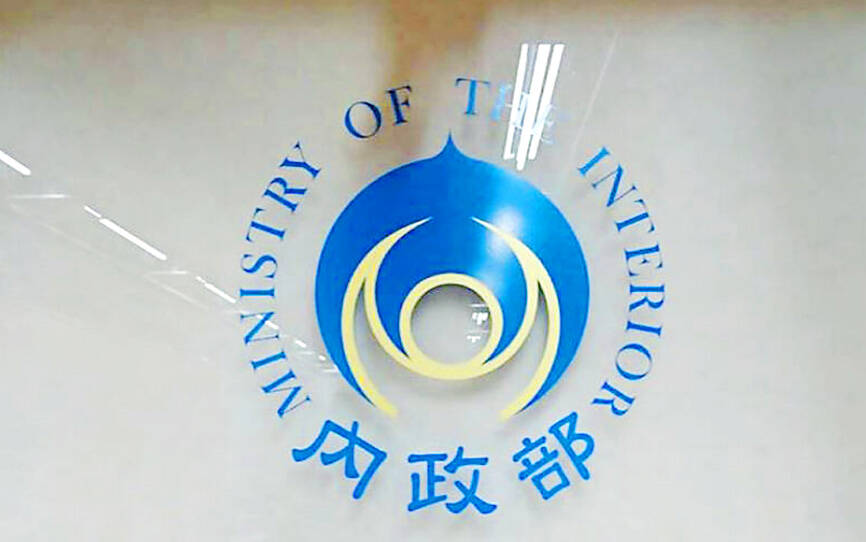The Ministry of the Interior (MOI) has proposed amendments to allow foreign nationals to extend their stay in Taiwan after they graduate or if they have to take care of family members.
The planned amendments to the Regulations Governing Visiting, Residence and Permanent Residence of Aliens (外國人停留居留及永久居留辦法) were proposed to protect the rights and interests of foreigners, the ministry said yesterday.
The amendments would allow a foreign national to extend their stay in Taiwan if they have to take care of a family member who has residency in Taiwan and has been hospitalized with a serious illness or injury.

Photo: Huang Hsin-po, Taipei Times
Those who wish to apply for an extension must submit the required documents within three months of the expiration of their stay, the amendments say.
Foreigners who are older than 18 can extend their stay if either parent is a Taiwanese national, or is permitted to reside in Taiwan, they say.
The proposed rule change would also apply if either parent is a resident of Hong Kong or Macau who has been granted residency in Taiwan.
The amendments were proposed because some foreigners’ parents have been naturalized, yet they do not have Alien Resident Certificates or Alien Permanent Resident Certificates, the ministry said.
To encourage foreign talent to work in Taiwan, those who study in Taiwan can extend their residency for a year after graduation and another year if needed, the amendments say.
The proposal would remove the one-year cap on the validity of resident certificates issued to foreigners who study at a registered school. Those covered would include people who study at a Chinese-language institute affiliated with a university, those who come to Taiwan to study Chinese at a short-term tutoring center, foreign missionaries and those applying for residency for the first time based on marriage to a Taiwanese national.
Those who were born in China would have to provide documents proving that they do not have household registration in China or hold a Chinese passport when applying for residency.

CALL FOR SUPPORT: President William Lai called on lawmakers across party lines to ensure the livelihood of Taiwanese and that national security is protected President William Lai (賴清德) yesterday called for bipartisan support for Taiwan’s investment in self-defense capabilities at the christening and launch of two coast guard vessels at CSBC Corp, Taiwan’s (台灣國際造船) shipyard in Kaohsiung. The Taipei (台北) is the fourth and final ship of the Chiayi-class offshore patrol vessels, and the Siraya (西拉雅) is the Coast Guard Administration’s (CGA) first-ever ocean patrol vessel, the government said. The Taipei is the fourth and final ship of the Chiayi-class offshore patrol vessels with a displacement of about 4,000 tonnes, Lai said. This ship class was ordered as a result of former president Tsai Ing-wen’s (蔡英文) 2018

‘SECRETS’: While saying China would not attack during his presidency, Donald Trump declined to say how Washington would respond if Beijing were to take military action US President Donald Trump said that China would not take military action against Taiwan while he is president, as the Chinese leaders “know the consequences.” Trump made the statement during an interview on CBS’ 60 Minutes program that aired on Sunday, a few days after his meeting with Chinese President Xi Jinping (習近平) in South Korea. “He [Xi] has openly said, and his people have openly said at meetings, ‘we would never do anything while President Trump is president,’ because they know the consequences,” Trump said in the interview. However, he repeatedly declined to say exactly how Washington would respond in

WARFARE: All sectors of society should recognize, unite, and collectively resist and condemn Beijing’s cross-border suppression, MAC Minister Chiu Chui-cheng said The number of Taiwanese detained because of legal affairs by Chinese authorities has tripled this year, as Beijing intensified its intimidation and division of Taiwanese by combining lawfare and cognitive warfare, the Mainland Affairs Council (MAC) said yesterday. MAC Minister Chiu Chui-cheng (邱垂正) made the statement in response to questions by Democratic Progressive Party (DPP) Legislator Puma Shen (沈柏洋) about the government’s response to counter Chinese public opinion warfare, lawfare and psychological warfare. Shen said he is also being investigated by China for promoting “Taiwanese independence.” He was referring to a report published on Tuesday last week by China’s state-run Xinhua news agency,

‘ADDITIONAL CONDITION’: Taiwan will work with like-minded countries to protect its right to participate in next year’s meeting, the foreign ministry said The US will “continue to press China for security arrangements and protocols that safeguard all participants when attending APEC meetings in China,” a US Department of State spokesperson said yesterday, after Beijing suggested that members must adhere to its “one China principle” to participate. “The United States insists on the full and equal participation of all APEC member economies — including Taiwan — consistent with APEC’s guidelines, rules and established practice, as affirmed by China in its offer to host in 2026,” the unnamed spokesperson said in response to media queries about China putting a “one China” principle condition on Taiwan’s